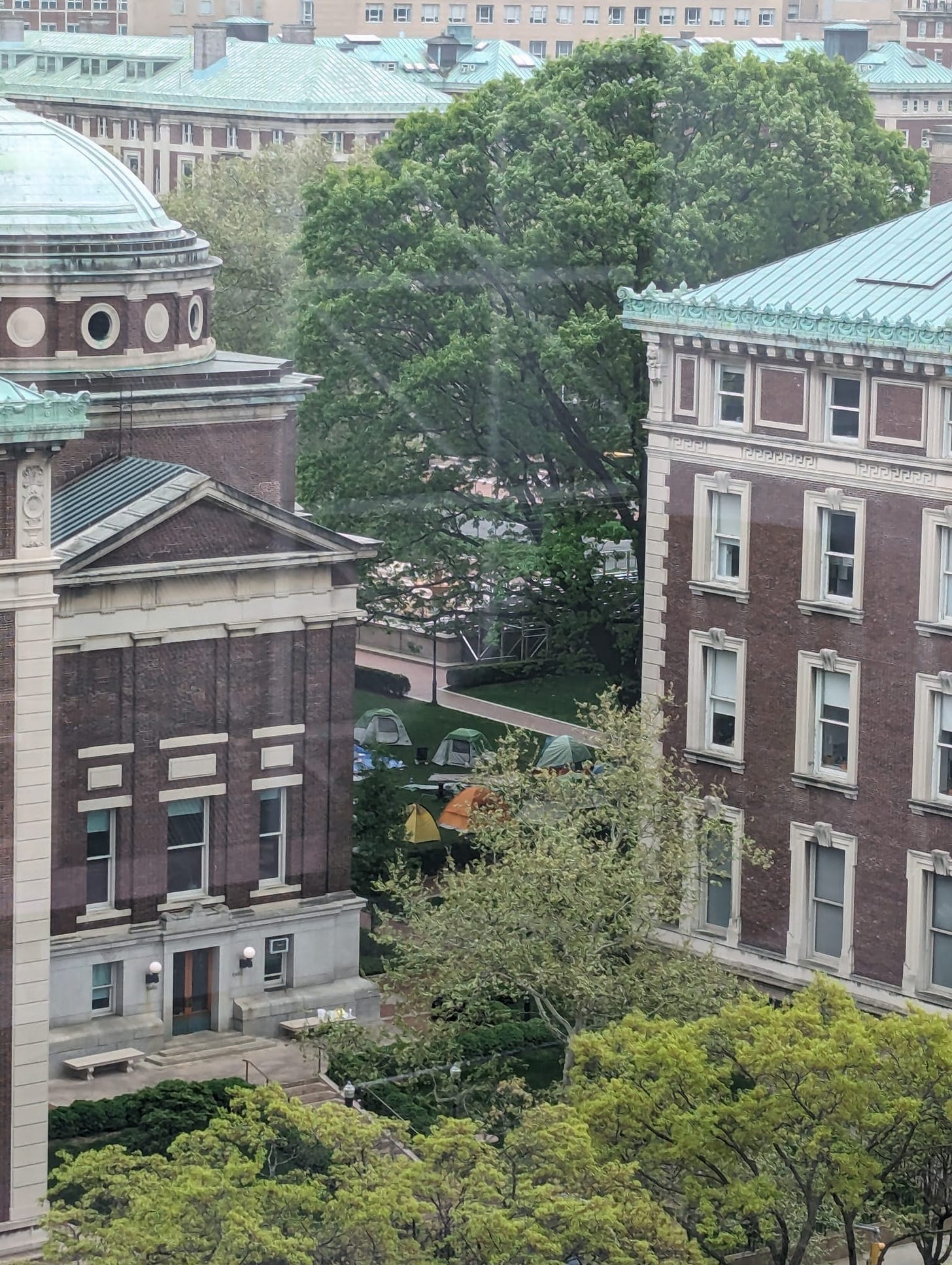Minority Report
On the 22nd of April, by a vote of 102 to zero, the Barnard chapter of the American Association for University Professors issued a vote of no confidence in President Laura Rosenbury. This was followed two days later by a similarly decisive vote at a faculty caucus, this time by a margin of 98 to one. The no-confidence motion was then put to an online vote of the entire faculty and passed with 228 voting in favor, 56 opposed, and 12 abstaining (with 113 choosing not to participate).
I voted with the minority within minutes of receiving the ballot, expecting to be among a handful of dissenters in a sea of uniform opinion. The fact that almost one-fifth of the participating faculty voted against the motion was therefore quite surprising. This is especially so since there was no public debate at which faculty could hear robust arguments against the motion, given the absence of any meaningful dissent at the earlier stages.
The timing could not have been worse. The results hit my inbox at 12:48am this morning, just minutes after the occupation of Hamilton Hall had begun. The main Columbia campus is now in lockdown, with entry permitted only to those living in residence halls on the premises. All libraries have been shut. Barnard is closed to Columbia students, which is something I have never seen and could never have imagined.
Once a message is sent, the speaker loses control of its interpretation, and it seems likely to me that the vote of no confidence will be seen in some quarters as an endorsement of the encampment and the occupation of the building. Some supporters of the resolution will be comfortable with this, others will not.
I suspect that motives among those voting against the resolution might vary quite a bit, and so would like to explain my own reasoning.
I do not consider the charges leveled against our senior administration to be baseless; on the contrary I think that the concerns are valid and vital. However, I fear that the adversarial approach taken in this instance plays into the hands of external critics who pose a much greater threat to our traditions. Critics who view us not as seekers of truth or generators of ideas, but as agents of indoctrination. Who would like to engage in a hostile takeover and dismantle shared governance, phase out tenure, and eliminate departments they consider to be ideologically captured. Who would like to implement on a much grander scale what they have already managed to accomplish at New College of Florida.
The challenges to shared governance, free expression, and student care that are identified in the resolution are real and important, but they pale in comparison to the threats from those who see the university as hopelessly captured. While we focus our fire on current leadership, we are giving ammunition to those who would dismantle our traditions in far more substantial ways. Those of us who think that private institutions with large endowments are safe, unlike state universities subject to legislative control, might be in for a shock come November.
In order to resist these pressures, we have to do two things.
First, we have to distinguish errors of judgment in pursuit of broadly shared goals from attempts to impose a very different vision. That is why I prefer constructive rather than adversarial approaches to internal divisions, and why I voted against the resolution.
Second, we have to acknowledge that our critics have a point, and to apply our principles in ways that are seen to be content-neutral and consistent.
Consider, for instance, freedom of expression. This principle has been embraced in recent months to defend the right of students to make statements that others might hear as disguised support for violence. Defending this right is the correct position to take. But one cannot simultaneously defend the right to engage in distressing speech of this kind and equate words with physical violence. The Chicago Principles, which Barnard recently adopted by a vote of the faculty, clearly rule out the heckler’s veto. Whether the speaker is a university president, a federal judge, a controversial scholar, or simply someone who has expressed an unpopular opinion, consistency requires that the rights of people to listen are fully protected.
American research universities and liberal arts colleges continue to be major export engines and magnets for talent. We produce something for which there is strong global demand. Together with the movie and music industries, live theater, sports leagues, pharmaceuticals, finance, and technology, higher education is a sector in which we still enjoy leadership if not dominance.
To keep it that way, it is important to protect and preserve what is most precious, abandon practices that expose us to legitimate criticism, think a few steps ahead to the largest threats facing our institutions, and try to address internal divisions in the most constructive manner possible. Otherwise centuries of tradition and mountains of amassed wealth will not save us from disaster.


